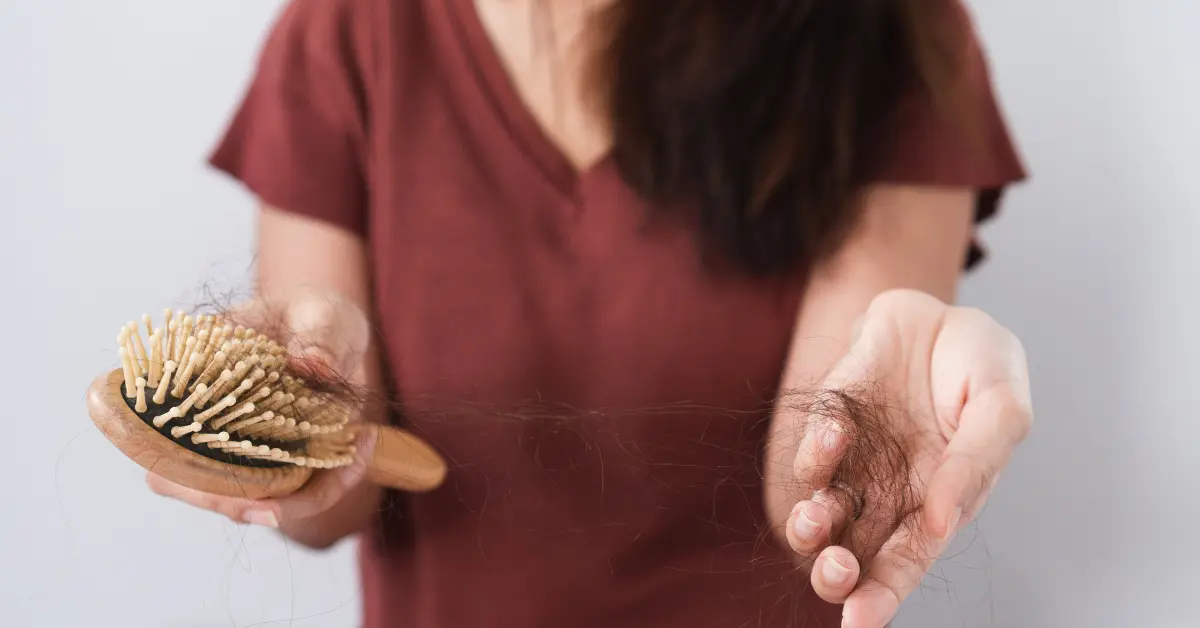How to Stop Hormonal Hair Loss?
Hormonal imbalance can cause many unpleasant symptoms. Hair loss is one such occurrence.
Nearly every postmenopausal woman experiences hair loss to some degree.
Hair loss, in general, is also a very common problem faced by many.
According to global Google statistics, around 60% of women and 77% of men suffer from hair loss.
Keep reading to learn how hormonal imbalance causes hair loss and how to stop hormonal hair loss.
Hormonal imbalance and hair loss
Estrogen and progesterone in our body help hair grow faster and keep it in an active phase for a longer time.
During hormonal imbalance, if levels of these hormones drop, it triggers an increase in androgen production.
Higher levels of androgens in your hair follicles lead to shorter hair growth cycles.
Moreover, it causes hair to grow shorter and thinner.
It is common to experience these hormonal fluctuations.
You can, however, try some treatments and follow some tips to maintain your hair growth.
Platelet-Rich Plasma therapy

Platelet-rich plasma is a small amount of plasma with higher-than-normal concentrations of platelets found in our blood.
Studies have shown that PRP is an effective treatment for many conditions, including hair loss.
During the procedure, your own blood platelets are injected into the thinning areas of the scalp at the root of your hair.
Your blood platelets are known to have the ability to regenerate damaged cells and help in hair regrowth.
Oftentimes, PRP is combined with topical treatments or dietary supplements for better results.
This treatment helps reduce hair loss from hormonal changes caused by PCOS or menopause.
Hormonal replacement therapy
During menopause, ovaries make less of the hormone estrogen.
This change in hormone levels causes some physical changes in your body.
Hormone replacement therapy helps replace and balance these hormonal changes occurring in the body and reduce menopausal symptoms.
You can take pills, therapies, topical creams, or patches to balance your hormone levels.
Hormone replacement therapy is the most effective treatment to date for menopausal symptoms.
However, like every other treatment, HRT has some side effects, such as headaches, blood clots, or bloating.
Thus it is advised to consult your doctor before starting the treatment.
Minoxidil
Minoxidil is FDA approved topical medication that comes under the class of drugs called Vasodilators.
Medicine is available over the counter as a solution and foam to apply topically on the scalp.
It helps enhance blood circulation to the scalp, thus improving hair follicle health.
However, you need to stay patient as the medicine takes several months to show visible results.
| Medicines | Prices |
|---|---|
| Tugain 5% | $20.54 |
| Hair 4u 2% | $19.80 |
| Hair 4u 5% | $21.61 |
Oleanolic acid
Menopause can cause excess production of Dihydrotestosterone (DHT) which is the leading cause of hormonal hair loss.
Oleanolic acid can inhibit the effects of DHT on your scalp and reduce hair thinning.
It is a phytochemical found in many natural foods like garlic, olive oil, cloves, basil, and rose apples.
It works by stimulating the reproduction of epithelial cells located at the base of hair follicles.
When applied to the scalp, it also prevents DHT from binding with androgen receptors responsible for shortening the active hair cycle.
Thus, this natural compound helps stop and reverse the hormonal hair loss caused by excess DHT.
Lifestyle changes

Besides hormonal changes, there are numerous factors contributing to hair loss during menopause.
You can make some lifestyle changes to stop hormonal hair loss naturally.
Reduced estrogen production can cause mood swings, stress, or anxiety, leading to hair loss.
However, daily exercise is helpful in reducing these menopausal symptoms.
Eating healthy and well-balanced food is the best defense against thinning hair.
Try including vegetables, vitamin B6, folic acid supplements, and fatty acids to maintain hair growth.
Drinking water is necessary for your body to function correctly. It helps keep your overall health in check.
Takeaway
Hormones play an important role in our bodies.
Thus, its imbalance can lead to many problems, including hair loss.
The good thing is there are treatments such as hormonal replacement and platelet-rich plasma therapy to reduce this hair loss.
You can also make some changes in your lifestyle to maintain your hair health.






